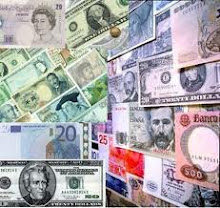At Church’s Urging, Cuba Frees 7 More Dissidents
>> Saturday, February 19, 2011
HAVANA (AP) — Cuba’s government has agreed to free seven more prisoners, the Roman Catholic Church announced on Saturday.
Six of the prisoners, who were charged with crimes against state security, would be sent to Spain, the church said. The seventh prisoner said he planned to stay in Cuba.
The government has recently released dozens of prisoners, most of them political dissidents, at the behest of the church. Almost all of them have been quickly sent into exile.
But the Havana archbishop’s office said that Ivan Hernández, one of the men on the latest list or freed prisoners, had refused exile. Mr. Hernández, an independent journalist, was among 75 people arrested in a crackdown on dissidents in 2003. The inmates who have vowed to remain in Cuba have been the last to leave prison.
“This is what we have been waiting for so long!” Asunción Carrillo, Mr. Hernández’s mother, said from her home in Matanzas, about 85 miles east of Havana.
The archbishop’s office said the other six prisoners on the list released on Saturday were Roger Cardoso, Yoan José Navalon, Yosnel Batista, Juan Antonio Bermudez, Marco Antonio Zayas and Reinier Concepción.
Mr. Bermudez had been serving a four-year sentence for carrying out attacks and causing damage, and Mr. Zayas and Mr. Concepción had been sentenced to eight years for terrorism, according to the independent Cuban Commission for Human Rights and National Reconciliation, which keeps a list of political detainees.
The commission’s president, Elizardo Sanchez, said that Mr. Cardoso was serving a 20-year sentence, and Mr. Navalon and Mr. Batista had been sentenced to prison for piracy — a category that often includes people who seize boats in an attempt to leave the island.
Ms. Carrillo said that the archbishop, Cardinal Jaime Ortega, called her on Friday to say her son “would be freed in the coming hours. He did not say when or how, but I am very happy. Imagine it!”
She said her son later called and told her that Cardinal Ortega had also told him that he was about to be released.
“It is great joy, but my son also confirmed that he is maintaining his decision not to leave Cuba, to stay in his country,” Ms. Carrillo said. Mr. Hernández, 39, had been serving a 25-year sentence.
The government arrested 75 dissidents in 2003 and accused them of working with the United States to undermine Cuba’s communist system. The dissidents have denied the accusations.
Fifty-two of the dissidents were still in prison last year when the church announced that the Cuban government had promised to free them all.
Most have been sent to Spain with a few relatives, but a small group has refused to leave Cuba, and their releases have been delayed.
Last week, however, the government freed Ángel Moya and Héctor Maseda, whose wives had crusaded for their release as part of the Ladies in White group that staged weekly demonstrations in Havana. Only 6 of the 75 original dissidents remain in prison.
Six of the prisoners, who were charged with crimes against state security, would be sent to Spain, the church said. The seventh prisoner said he planned to stay in Cuba.
The government has recently released dozens of prisoners, most of them political dissidents, at the behest of the church. Almost all of them have been quickly sent into exile.
But the Havana archbishop’s office said that Ivan Hernández, one of the men on the latest list or freed prisoners, had refused exile. Mr. Hernández, an independent journalist, was among 75 people arrested in a crackdown on dissidents in 2003. The inmates who have vowed to remain in Cuba have been the last to leave prison.
“This is what we have been waiting for so long!” Asunción Carrillo, Mr. Hernández’s mother, said from her home in Matanzas, about 85 miles east of Havana.
The archbishop’s office said the other six prisoners on the list released on Saturday were Roger Cardoso, Yoan José Navalon, Yosnel Batista, Juan Antonio Bermudez, Marco Antonio Zayas and Reinier Concepción.
Mr. Bermudez had been serving a four-year sentence for carrying out attacks and causing damage, and Mr. Zayas and Mr. Concepción had been sentenced to eight years for terrorism, according to the independent Cuban Commission for Human Rights and National Reconciliation, which keeps a list of political detainees.
The commission’s president, Elizardo Sanchez, said that Mr. Cardoso was serving a 20-year sentence, and Mr. Navalon and Mr. Batista had been sentenced to prison for piracy — a category that often includes people who seize boats in an attempt to leave the island.
Ms. Carrillo said that the archbishop, Cardinal Jaime Ortega, called her on Friday to say her son “would be freed in the coming hours. He did not say when or how, but I am very happy. Imagine it!”
She said her son later called and told her that Cardinal Ortega had also told him that he was about to be released.
“It is great joy, but my son also confirmed that he is maintaining his decision not to leave Cuba, to stay in his country,” Ms. Carrillo said. Mr. Hernández, 39, had been serving a 25-year sentence.
The government arrested 75 dissidents in 2003 and accused them of working with the United States to undermine Cuba’s communist system. The dissidents have denied the accusations.
Fifty-two of the dissidents were still in prison last year when the church announced that the Cuban government had promised to free them all.
Most have been sent to Spain with a few relatives, but a small group has refused to leave Cuba, and their releases have been delayed.
Last week, however, the government freed Ángel Moya and Héctor Maseda, whose wives had crusaded for their release as part of the Ladies in White group that staged weekly demonstrations in Havana. Only 6 of the 75 original dissidents remain in prison.








0 comments:
Post a Comment